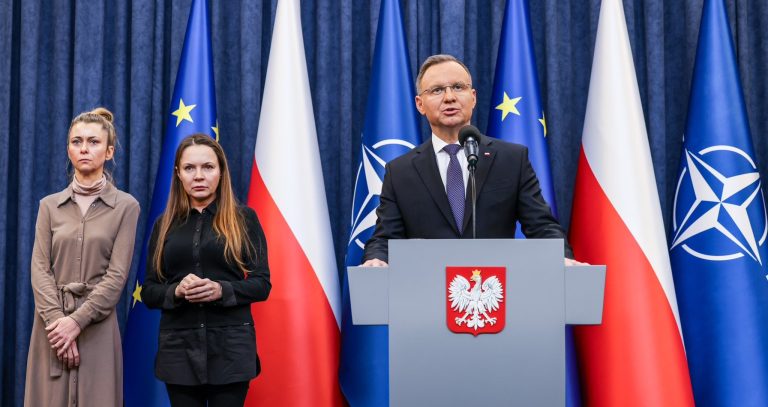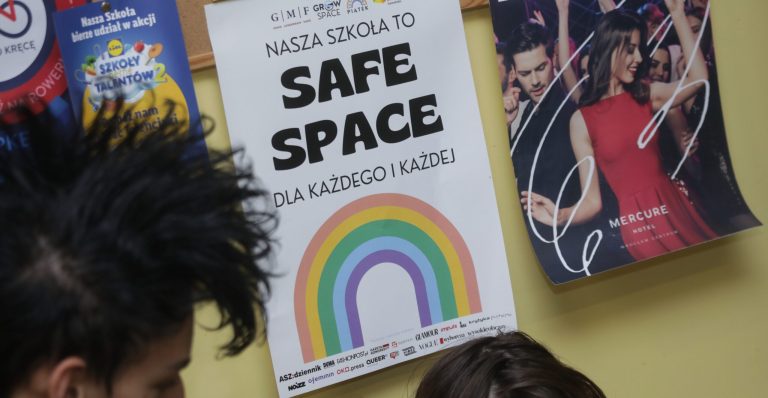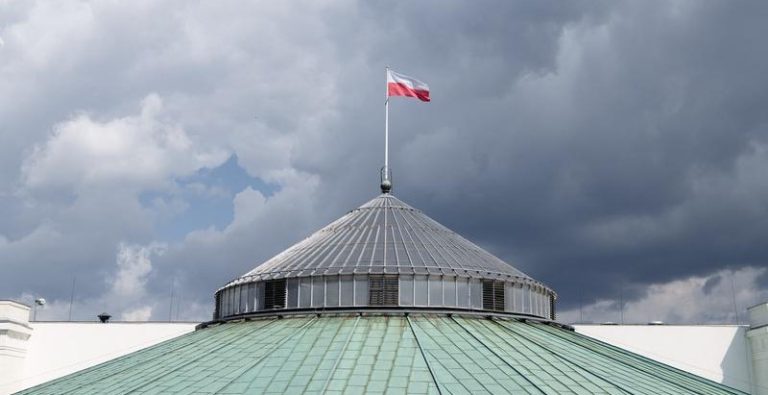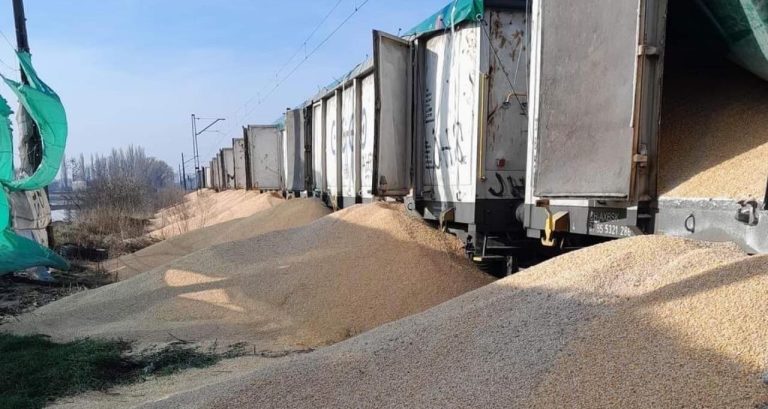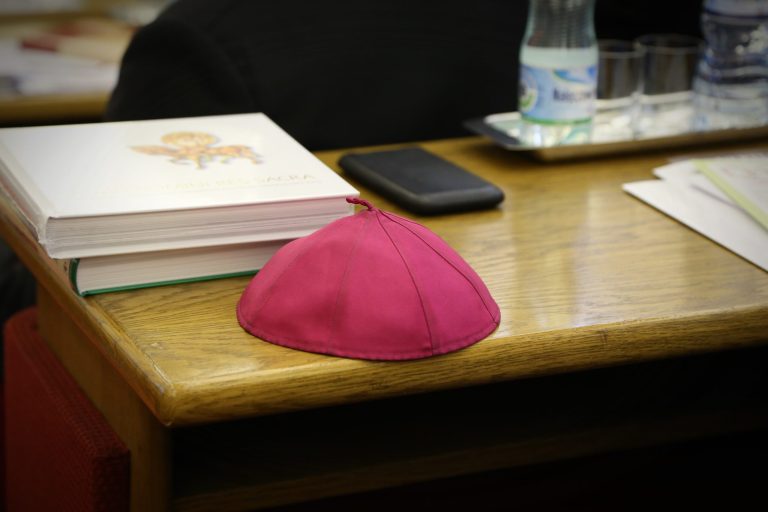More provocations from the territory of Belarus will come, says Polish PM
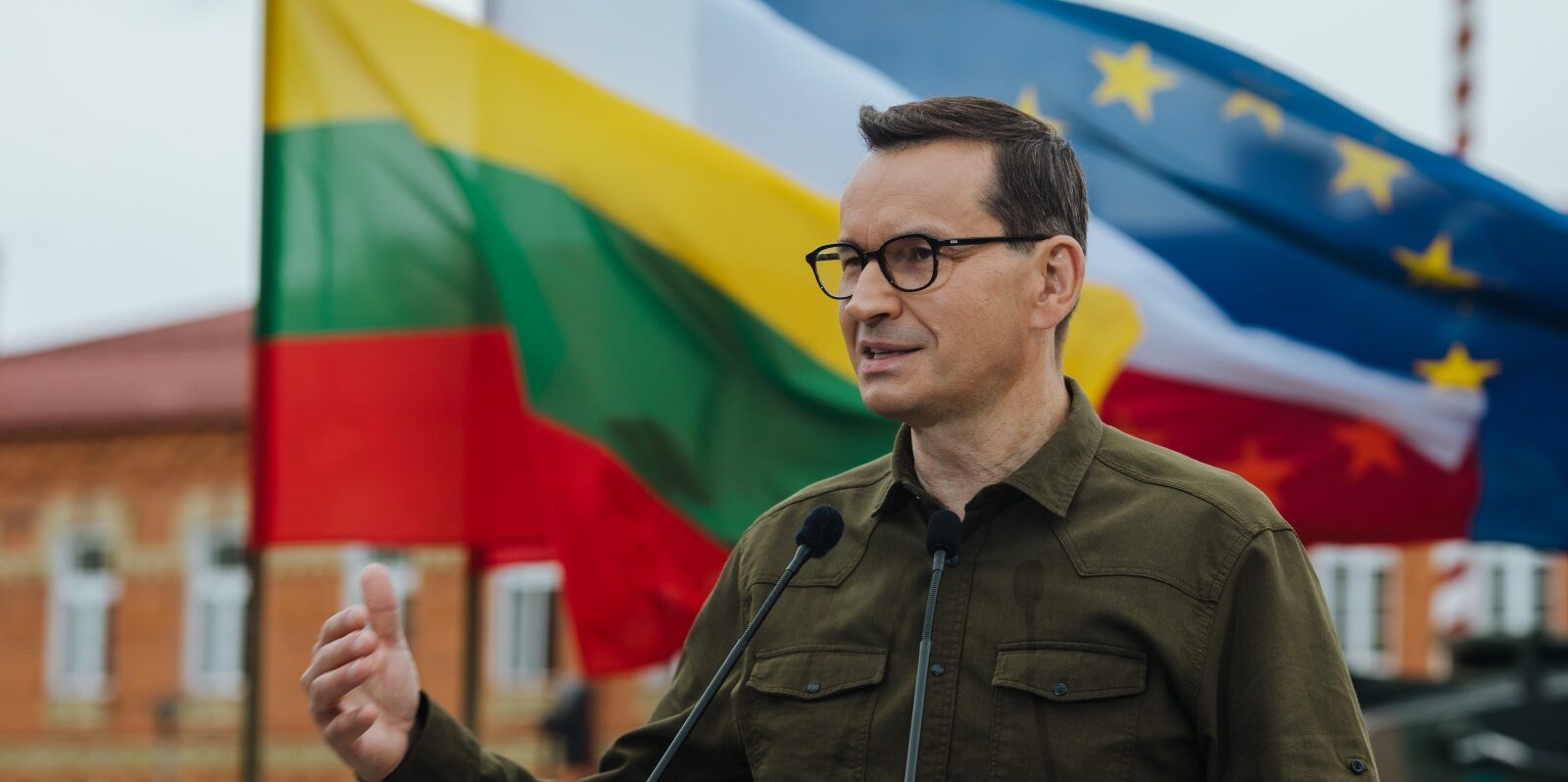
The Polish prime minister has warned that there will be further provocations from Belarusian territory during a meeting with Lithuanian President Gitanas Nausėda today near Suwałki, only days after Belarussian helicopters flew into Polish airspace.
Mateusz Morawiecki noted that at least 4,000 Russian mercenaries from the Wagner Group are currently present in Belarus, while more than 100 mercenaries have moved toward the Suwałki Gap – a strategically important choke point on the border between Poland and Lithuania.
“Surely, this is a step towards a further hybrid attack on Polish territory,” he said. “This has to do with provocations on our eastern border and escalating tensions in the region.”
Premier @MorawieckiM w #Suwałki: Grupa Wagnera na Białorusi to jeden z tematów naszych dzisiejszych rozmów z prezydentem Litwy @GitanasNauseda. Ich obecność na tym terenie to testowanie przez Rosję i Białoruś reakcji Polski i naszych sojuszników.
— Kancelaria Premiera (@PremierRP) August 3, 2023
“There will be more such provocations and they will be calculated to create confusion in Poland and other NATO countries, especially in our region,” he added. “Cooperation between Poland and our ally Lithuania is essential in the face of these threats and provocations.”
The Polish prime minister expects that Wagner mercenaries might try to get into Poland and carry out sabotage and espionage activities while disguised as migrants, thousands of whom have been trying to illegally cross the Polish-Belarusian border for more than two years.
Poland is one of Ukraine’s main allies against Russia, and since the beginning of the war has become a major transporting hub for military and humanitarian aid to Ukraine. Since the beginning of the year, Poland has detained more than a dozen people suspected of spying for Russia.
According to Morawiecki, the provocations are aimed at “destabilising and creating turmoil, chaos, uncertainty and at the same time showing the weakness of NATO’s eastern flank to all our NATO partners.”
“The Russians are testing the reactions of Poland and our allies in this way. We respond to these Russian and Belarusian provocations, of which the Wagner Group is an instrument, very strongly,” he said.
The Wagner group was sent to Belarus following their short-lived rebellion against the Russian army in June, to which Poland responded by sending additional forces to its eastern border. Last month, Wagner mercenaries began holding training exercises with Belarusian special forces near the border, though Warsaw said at the time that there was no reason to “panic”.
This week, however, two Belarusian helicopters violated Polish airspace by crossing the border into Poland. In response, the Polish defence minister ordered an increase in the number of soldiers on the border and allocated additional forces and resources, including combat helicopters.
Following the incident, the United States also said that it is “constantly monitoring” the Belarusian regime’s actions against Poland and its neighbours.
In our latest episode, @AlicjaPtak4 speaks with exiled Belarusian opposition figure @PavelLatushka about the deal signed last week to deploy Russian tactical nuclear weapons in Belarus and Minsk’s role in Russia’s displacement of Ukrainian children https://t.co/UO3mdrGmHE
— News from Central and Eastern Europe (@NewsFromCEE) June 1, 2023
The Lithuanian president assessed the meeting with Morawiecki as “productive.” According to Nausėda, the presence of the Wagner group’s mercenaries also “could be a big temptation for Lukashenko and Putin to use them to provoke NATO countries.”
“We are considering closing the border with Belarus, but this would have to be coordinated with Poland and Latvia,” he added, as quoted by Polskie Radio.
Nausėda noted, however, that the Wagner Group’s presence in Belarus is only one factor in the escalation of tensions in the region, pointing also to Belarusian efforts to deploy Russian tactical nuclear weapons on its territory.
Notes from Poland is run by a small editorial team and published by an independent, non-profit foundation that is funded through donations from our readers. We cannot do what we do without your support.
Main image credit: Kancelaria Premiera / twitter.com

Alicja Ptak is senior editor at Notes from Poland and a multimedia journalist. She previously worked for Reuters.

